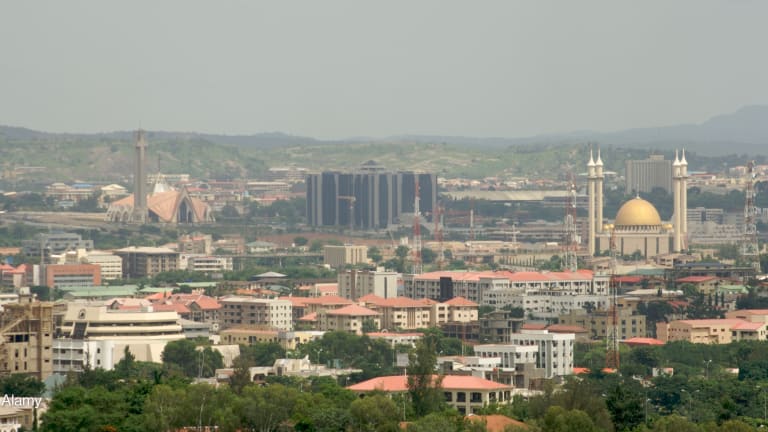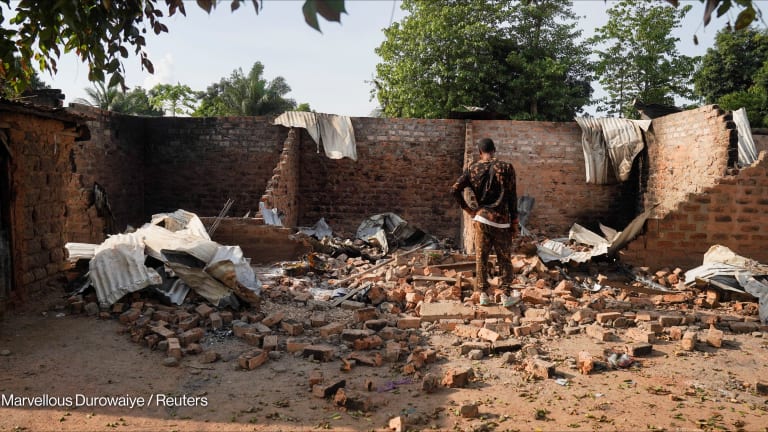
Northeast Nigeria is nearing a decade of conflict with no clear end in sight. A year ago, the story looked different, with the government’s aggressive campaign against Boko Haram coupled with robust humanitarian relief operations bringing some much-needed stability. The resurgence of armed opposition groups in late 2018 reversed the trend, however, newly displacing another 300,000 people. With over 7 million Nigerians in need of urgent assistance, the region remains fraught with a crisis of massive proportions.
Northeast Nigeria’s uncertain trajectory underscores the wider call across the aid community to rethink our approach to humanitarian crises and recovery. Currently, 1.8 billion people live in fragile communities and by 2030 nearly 50 percent of the world’s poorest people are expected to be living in fragile contexts. In protracted conflict, the path to progress is not linear, governance systems are frail at best and communities live with constant and severe disruptions.
And yet few practical solutions have emerged to guide us in how to work differently to help communities not only better cope during crisis, but simultaneously address the conditions that perpetuate conflict.
To seek solutions, for the first time Mercy Corps applied its strategic risk and resilience assessment, or STRESS — normally used where climate hazards and economic-related shocks are the primary drivers of humanitarian need — to the protracted conflict in northeast Nigeria. The process underscored how episodes of violence contribute to an unpredictable web of livelihood, food security, social, and environmental shocks, and beget more violence.
Among our findings, four key insights stand out for how practitioners can help build resilience in these fragile contexts.
1. Protect and strengthen market connections
In speaking with more than 1,500 young men and women in Borno state, we identified proximity to a market as a key indicator of adaptability during conflict — more so than reliance on NGO or government support.
Our research also found that private sector actors are eager to engage in local markets, and opportunities exist in areas such as agricultural input supply, food provision, and textiles. Access to capital and accurate market and security information can motivate the private sector to invest and help revive Borno’s markets.
We’re starting to see tangible results: A large Nigerian commercial poultry firm expanded operations to southern Borno when it recognized a market opportunity to extend sales through mostly women resellers purchasing their starter breeding kits. Through a creative subsidy guaranty to reduce the risk of investment on both sides, we supported women to purchase chicks to rear for sale and household consumption, bringing both nutritious food and new business opportunities to the recovering economy.
2. Facilitate access to information and build portable assets and skills
People often face new restrictions, or further displacement, even when they have settled in “protected” garrison towns. Information ranging from travel and market restrictions to secure locations and humanitarian assistance is either ambiguous or simply inaccessible. Nearly half of the internally displaced Nigerians we spoke with said they lacked basic information on security in their home communities. Farmers and traders spoke of their frustration with irregular information on commodity prices and travel restrictions.
Aid actors should prioritize accurate information as a “basic need” to improve coping and recovery. This may range from smaller efforts, like incorporating security information into distributions or offering phone credit, to more concerted interventions such as enhancing trusted leaders’ access to credible information or advocating for rapid restoration of mobile phone coverage.
In addition, assistance can be better tailored to the dynamic environment. For example, savings groups supported through mobile money platforms can help ensure funds are available and social connections sustained even if people move.
Transferable skills and knowledge, such as nutrition education and household gardening, combined with portable assets, like poultry or other small livestock with a low fixed cost, can withstand a move and generate sustained access to income and nutritious food in space- and resource-constrained conditions.
Consultations with affected communities should inform all efforts. Our research revealed mounting grievances that aid organizations were not listening closely enough to the people they seek to help.

3. Strengthen social connections to advance peace
In Borno, we found that armed insurgency has generated many new sources of conflict, from forced displacement to restricted mobility to blockades, land and resource disputes, checkpoints and citizen exploitation. Building resilience in protracted crises means working to advance peace alongside traditional relief and economic recovery efforts.
Ensuring humanitarian aid also builds social cohesion, by incorporating activities to build trust between conflicting parties and promoting inclusive community forums to identify and address shared needs, like safe access to land, can reduce emerging conflict drivers. In Borno state, Mercy Corps supports community dialogues between civilians and security forces to discuss issues such as civilian protection.
While sometimes an uncomfortable space for humanitarians, supporting local dispute resolution and promoting dialogue between communities and with the government can be done in ways that preserve impartiality. Yet increased investment on this front is needed. Donor funding for conflict analysis and peacebuilding is woefully low given its centrality to effectively working in crisis contexts.
4. Invest in more robust contextual analysis to mitigate risk and maximize impact
Data collection and analysis tools are evolving at lightning speed and offer greater opportunity to recognize trends, improve early warning systems and increase the effectiveness and safety of aid responses.
Our discussions with communities underscored that socioeconomic progress is fragile and easily reversed: Ongoing and sudden restrictions on movement, questions about the role of civilian militias, and even shifts in humanitarian aid were factors respondents highlighted.
Better analytical tools and more frequent contextual analysis are needed to ensure aid design better reflects the dynamic risks communities face. For example, more robust market monitoring for signs of speculation and food hoarding, security updates analyzing changing dynamics along important transportation routes, and climate forecasts focused on areas facing resource constraints can inform programming and more robust scenario planning.
Recently, despite sudden road restrictions in Borno that blocked a primary transport route, a planned monthly food voucher distribution to an insecure town went forward because aid workers helped transporters identify alternative trade routes in anticipation of shifting security constraints.
Even with renewed conflict in northeast Nigeria, there are sustained calls for working differently to build resilience. The trick is in translating theory into practice. There are plenty of new ideas to test, new ways to engage private sector and other partners, and new technologies to apply.
Donors can influence this space by demanding and funding more innovative and diverse approaches centered around helping people cope, adapt and emerge stronger in conflict settings, accompanied by increasing investments in efforts to end violence and build peace.
In northeast Nigeria and in other fragile contexts around the world, we simply can’t afford to wait for crises to end before we begin helping communities transform their future.








